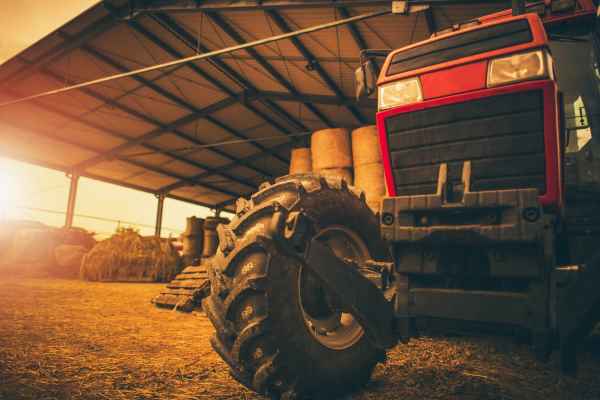Many businesses are struggling in the face of the economic slowdown caused by COVID-19. This may mean that production or operations are not yet proceeding at full tilt, even though Level 2 has seen the economy officially opened again. This in turn may mean that some equipment or machinery is standing still. Callum Ford, National Manager at Lubrication Engineers (LE) South Africa, suggests it’s important to keep your machinery protected while not in use with correct lubrication. This prevents damage and ensures your equipment is ready for use again when you need it.
Protecting equipment on the outside
“We tend to think of lubricating plant or equipment only when it’s in use,” he says. “But standing or stored equipment is also prone to rust, corrosion and contamination (especially by dust) and so it’s important to take preventative measures to ensure there’s no damage when you want to fire up your machinery again.”
Ford gives the example of marine cables and trailers, which will rust or suffer corrosion if stored. “Coating wires with LE’s Wirelife Almasol Coating Lubricant 2002 provides a tough outer coating, which seals the cables and protect against fretting corrosion, wear and rust, whether under extreme load and moisture, or in storage,” he explains. “When used in conjunction with Wirelife Monolec Penetrating Lubricant, maximum protection and wear reduction is achieved.”

Ford says that wire ropes and chains are not the only mechanisms that Wirelife can protect. He says LE South Africa has seen impressive results on the numerous gate padlocks at a game reserve that has been closed during lockdown. “We found that when the locks had not been used for a period of months, they became stiff and difficult to operate,” he says. “But when they were preventatively treated with LE’s Wirelife products, they remained in perfect working order. Wirelife lubricants are perfect for metal equipment being used outdoors, standing in saltwater, or being kept in long-term storage.”
Applications include mining and construction (standing and running lines, draglines, cranes and derricks), the marine environment (cranes, hoists and drilling rigs), and general rust prevention.
Taking care of the inside of engines
Ford says that modern combustion engines are designed to run at high temperatures to help increase thermal efficiency, extend oil drain intervals and reduce oil sump capacities (which in turn helps to minimise the engine size and weight). However, when machinery is used sporadically, in cold conditions or for short periods of time, there may be issues of oil degradation.
“Under these conditions, the cooling water temperature may not exceed 49°C, and the crankcase oil temperature may not even be this warm,” Ford says. “When the engine is started in cold weather or doesn’t have a chance to run for long, heavy fuel fractions enter the combustion chamber in liquid form and wash down the walls. Combustion is therefore liable to be erratic. Contamination from water and other products of combustion is also higher during low temperature operation because of the condensing effect of cold cylinder walls. The same problems exist with light duty engines that never get sufficiently warmed up.”
For says that under low temperature operation the oil essentially deteriorates by contamination rather than by oxidation. “The mixture of water, oil and contaminants forms a mayonnaise-like sludge,” he says. This tends to settle out of the oil on the bottom of the oil pan and in other areas of the engine not sufficiently washed by the oil.”
To help avoid this, LE South Africa suggests employing measures to increase the temperature of the cylinder walls and the crankcase oil. “Water temperature can be increased by using higher temperature thermostats, blocking off a portion of the radiator and/or using a fan that’s thermostatically controlled,” says Ford. “You could also insulate the outside surface of the crankcase and drain the crankcase at more frequent intervals than usual.”
LE South Africa also recommends using an engine oil designed to protect against oxidation and to maintain viscosity at both high and low temperature operation. “For truck and other diesel engines, I’d suggest LE’s Monolec Ultra Engine Oil,” says Ford. “It’s perfect for construction and mining equipment, farming equipment, and stationary diesel engines and is also backward compatible for use in older diesel engines. It will ensure equipment is protected from the inside, whether it’s running for short periods, after a break, or operating at full speed.”









